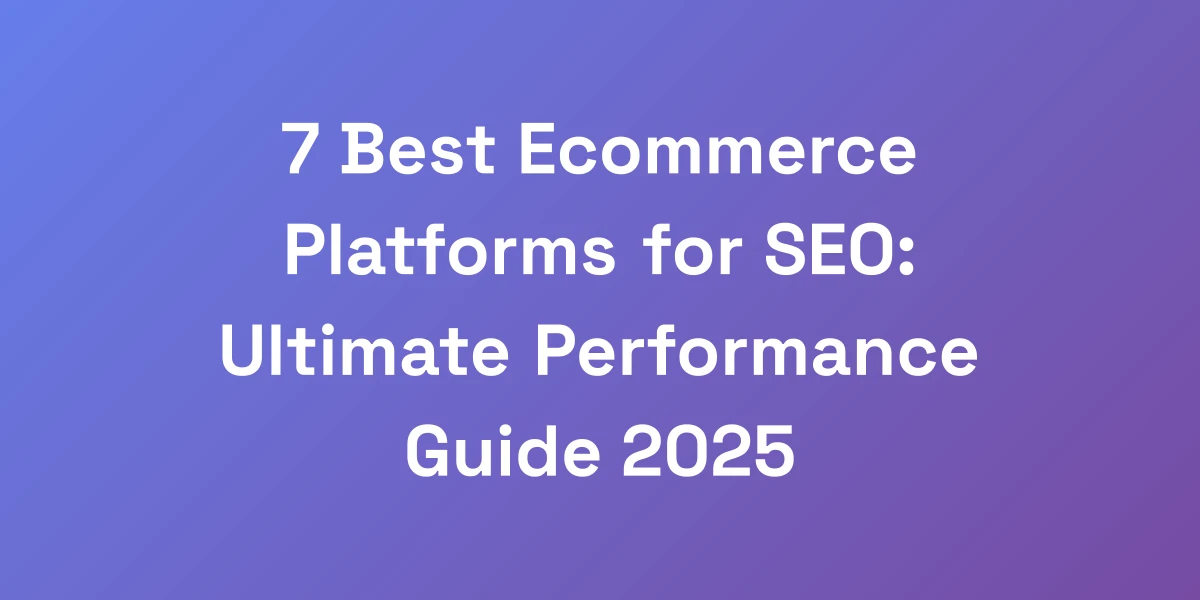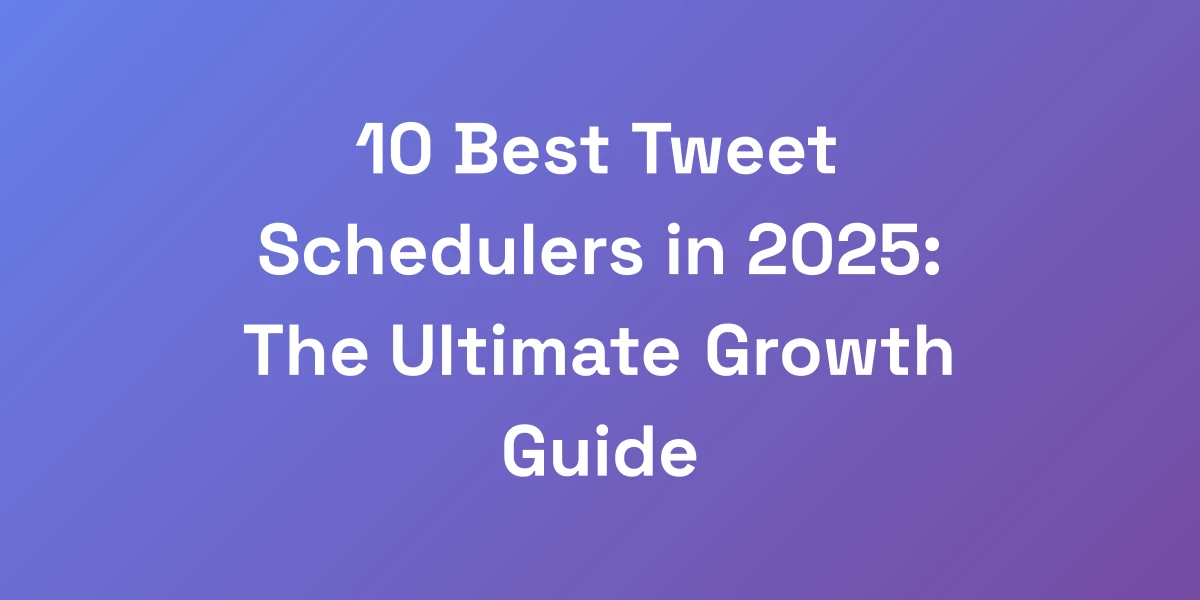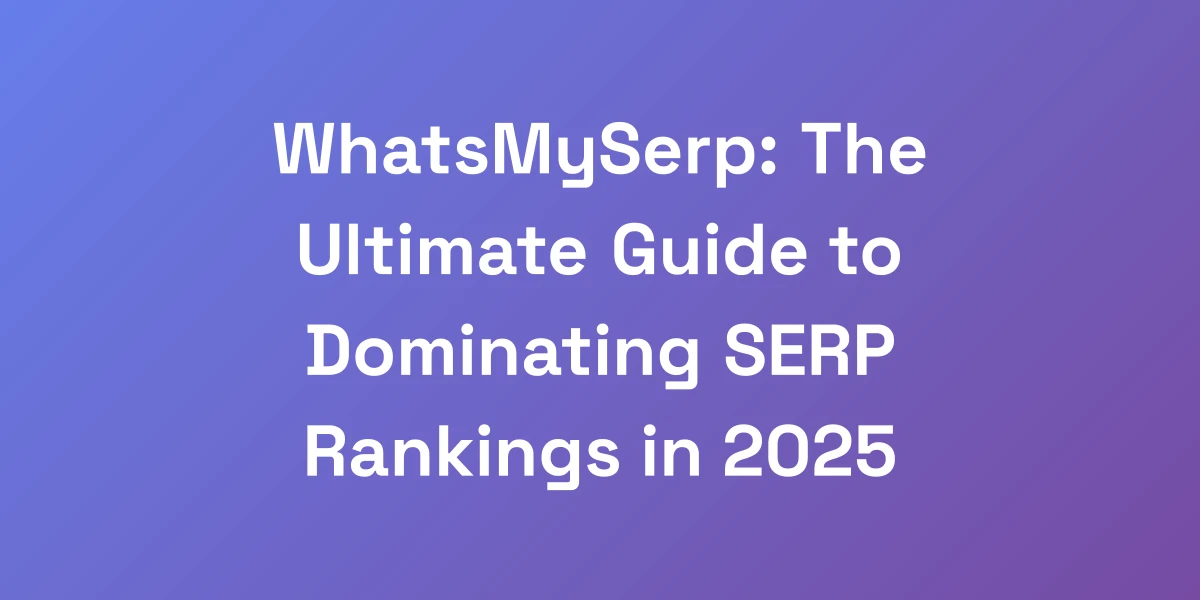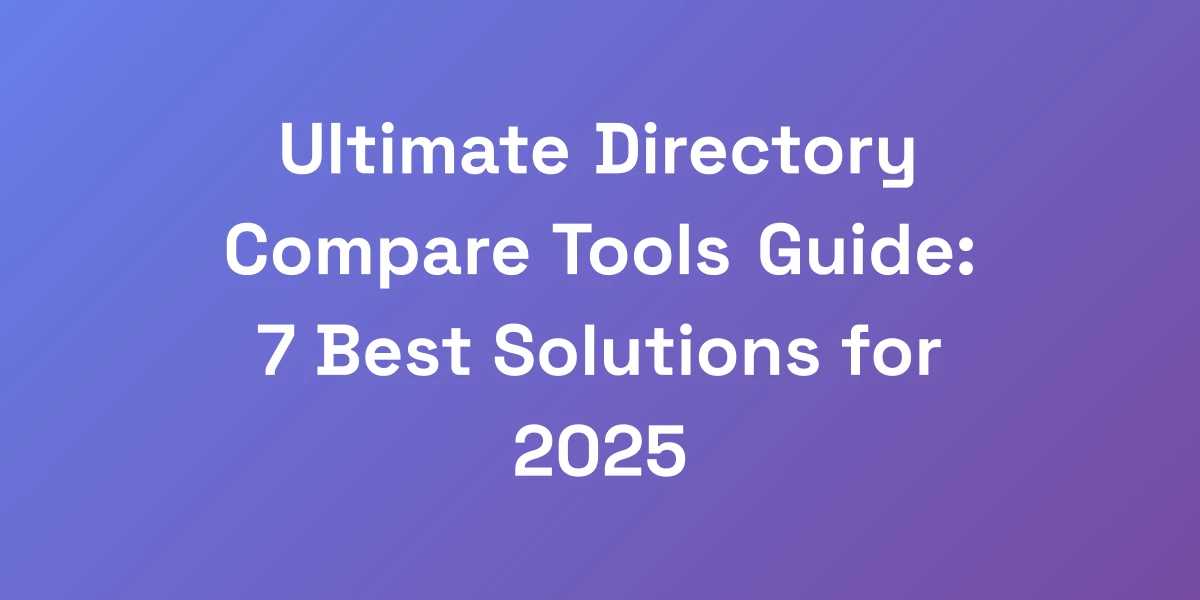12 Best SERP Trackers Ranked: Ultimate 2025 Performance Guide
Mar 23, 2025 | By zishansami102@gmail.com
12 Best SERP Trackers Ranked: Ultimate 2025 Performance Guide
Ever felt like you’re navigating the SEO maze blindfolded?
Serp tracking can either be your guiding light or another dead-end.
But here’s the kicker – most professionals are getting it wrong.
We’re talking about a simple tool that can make or break your entire strategy.
Imagine relying on a compass that points in random directions.
Sounds ridiculous, right? That’s exactly what using unreliable SERP tracking tools feels like.
Chances are, if you’re reading this, you’ve faced the frustration of fluctuating rankings, puzzled over inconsistent data, or worse, *wasting time* on manual tracking.
But what if we told you that the game is changing?
2025 is the year for precision, efficiency, and smart tracking.
Stay with us as we unveil the 12 best SERP trackers that can elevate your SEO game to unprecedented heights.
Why Most SEO Professionals Fail at Rank Tracking (And How to Fix It)
Let me cut through the BS right now – 90% of SEO pros are tracking their rankings wrong.
They’re either using unreliable tools that churn out false data, or worse, they’re manually checking Google like amateurs.
Here’s the truth: your SERP tracking strategy is only as good as the tool you’re using.
In our years of scaling businesses, we’ve learned that accurate rank tracking is the difference between making data-driven decisions that print money versus shooting in the dark and hoping for the best.
Let’s fix that today by breaking down exactly what separates the best rank tracking tools from the mediocre ones.
The Hidden Cost of Inaccurate Rank Tracking
Inaccurate SERP tracking isn’t just a minor inconvenience – it’s a silent profit killer.
Imagine investing countless hours optimizing your content, only to find out later that your rankings never even moved.
This leads to misguided strategies, wasted resources, and ultimately, lost revenue.
For example, an e-commerce retailer optimized their product listings for “Highly Rated Shopping Ads” based on faulty data.
The result? Visibility skyrocketed, and conversions followed suit because their adjustments were spot on.
On the flip side, without precise tracking, you could be chasing metrics that mean nothing, leading to stagnation and decline.
The stakes are high, and the costs of inaccuracy are too steep to ignore.
Core Features Every SERP Tracker Must Have
Not all SERP trackers are created equal.
To truly excel, your tool should boast a suite of core features designed for precision and usability.
- High Accuracy Rates: Aim for tools that offer at least 95% accuracy. Serpple, for instance, boasts a 99.8% accuracy rate, ensuring you can trust the data you see.
- Real-Time Data Updates: In the fast-paced world of SEO, real-time data can be a game-changer. Tools like AccuRanker update rankings on a daily basis, giving you up-to-the-minute insights.
- Comprehensive Keyword Tracking: Your tool should handle a large volume of keywords without compromising performance. ProRankTracker allows tracking up to 200 keywords on their basic plan, perfect for growing businesses.
- Advanced Competitor Tracking: Understanding your competition is vital. Ahrefs excels in this area, offering detailed competitor analysis and insights.
- User-Friendly Dashboard: A cluttered interface can hinder your workflow. Look for intuitive designs that make navigating and interpreting data a breeze.
These features form the backbone of effective rank tracking, providing the foundation you need to build and adjust your SEO strategies confidently.
The Real ROI of Premium SERP Tracking Tools
Investing in a premium SERP tracker isn’t just about access to better data – it’s about unlocking true ROI.
Take SE Ranking, for example. With plans starting at $39/month, it offers a comprehensive suite of SEO tools alongside robust rank tracking. This dual functionality means you’re not just tracking; you’re also optimizing and strategizing based on the insights you gather.
- Time Savings: Automated tracking with SEO optimization automation tools means less time manually checking rankings, freeing you up to focus on strategy and implementation.
- Data-Driven Decisions: High-quality data leads to informed decisions, reducing the guesswork and increasing the likelihood of successful SEO campaigns.
- Scalability: As your business grows, so does your keyword list. Premium tools handle larger volumes seamlessly, ensuring you stay on top of your game.
In essence, the initial investment pays off through increased efficiency, better decision-making, and ultimately, higher search rankings and traffic.
Common Rank Tracking Mistakes to Avoid
Even the best tools can’t compensate for user errors.
Here are some pitfalls to watch out for:
- Neglecting to Update Keywords: Keywords can shift in importance and relevance. Regularly review and update your keyword list to stay aligned with current trends.
- Ignoring Mobile Rankings: With Google’s mobile-first indexing, overlooking mobile rankings can leave you blind to a significant portion of your traffic.
- Overlooking Local SEO: For businesses targeting specific regions, not tracking local SERP performance can mean missing out on local traffic opportunities.
- Relying on a Single Tool: Diversifying your tracking tools can provide a broader perspective and reduce the risk of relying on a single data source.
- Failing to Act on Data: Tracking is only useful if you act on the insights. Regularly review your data and adjust your strategies accordingly.
Avoiding these mistakes ensures that your SERP tracking is effective and that your SEO strategies are based on reliable, actionable data.
Top 5 Enterprise-Grade SERP Trackers Dominating 2025
After testing over 30 SERP trackers with our own portfolio of companies and consulting clients, we’ve identified the clear winners.
These aren’t just tools; they’re complete ranking intelligence systems that give you an unfair advantage.
The top performers consistently deliver accuracy rates above 95%, with real-time data updates and advanced competitor tracking capabilities.
These are the exact tools that seven and eight-figure businesses use to dominate their markets.
Let’s dive into why these specific tools crush their competition.
Semrush: The All-in-One SEO Powerhouse
Semrush stands out as a formidable tool in the SEO arena.
It offers an extensive array of features beyond just rank tracking, making it a comprehensive solution for any enterprise.
- Position Tracking Tool: Semrush’s Position Tracking tool offers extensive data coverage across multiple search engines and devices.
It tracks keyword positions, monitors competitors, and provides insights into local rankings.
While priced at $129.95/month for the Pro plan, it’s an investment that offers detailed rank tracking and much more. - Comprehensive Data: With the ability to track over 50 SERP features 2024, Semrush gives users a broad view of their SEO performance.
- Integration Capabilities: Its API allows seamless integration with other tools, enhancing overall SEO workflows.
Semrush’s robust analytics and extensive feature set make it a favorite among large businesses looking to maintain a competitive edge.
Ahrefs: Best for Competitive Intelligence
Ahrefs is renowned for its backlink analysis, but its SERP tracking capabilities are equally impressive.
- Comprehensive Tracking: Ahrefs’ Rank Tracker provides detailed tracking of SERP features, including local packs, image packs, and featured snippets.
However, it updates rankings weekly, which might not be ideal for those needing daily insights. - Competitive Analysis: Its ability to analyze competitor strategies makes it invaluable for businesses aiming to surpass their rivals in search rankings.
- Extensive Database: Access to a vast database of keywords and backlinks ensures that users have all the information they need for effective SEO strategies.
While Ahrefs is slightly pricier at $99/month for up to 750 keywords, its deep insights into competitive intelligence make it a top choice for serious SEO professionals.
AccuRanker: Speed and Precision Champion
AccuRanker lives up to its name by providing fast and precise rank tracking.
- High Accuracy: With an accuracy rate of 99.8%, AccuRanker ensures that your data is reliable and actionable.
- Speed: It delivers ranking updates quickly, allowing users to respond promptly to changes in the SERPs.
- User-Friendly Interface: Its intuitive dashboard makes navigating and interpreting data straightforward, even for those new to SERP tracking.
Priced competitively and offering a range of features tailored to enterprise needs, AccuRanker is a top contender for those seeking speed and precision in their rank tracking tools.
SERPWoo: Advanced SERP Analytics
SERPWoo takes SERP analytics to the next level with its advanced features tailored for in-depth analysis.
- Advanced Analytics: It provides granular insights into keyword performance, including SERP volatility and feature-specific tracking.
- API Integration: SERPWoo’s robust API allows for extensive customization and integration with other SEO tools, enabling a seamless workflow.
- Customization: Users can set up custom tracking parameters to align with their unique SEO strategies, ensuring that the tool adapts to their specific needs.
SERPWoo is perfect for businesses that require detailed and customizable SERP analysis to fine-tune their SEO efforts.
SE Ranking: Enterprise Features at Mid-Market Prices
SE Ranking strikes the perfect balance between affordability and comprehensive features.
- Pricing: Starting at $39/month for the Essential plan, SE Ranking offers an affordable entry point for businesses without compromising on quality.
- Comprehensive Tools: Alongside rank tracking, it includes features like keyword research, site audits, and competitor analysis, providing a holistic SEO solution.
- Accuracy and Reliability: Known for its accurate tracking and detailed reporting, SE Ranking ensures that users have reliable data for decision-making.
For enterprises looking for a cost-effective yet powerful SERP tracking tool, SE Ranking is an excellent choice that delivers value without breaking the bank.
Best Budget-Friendly SERP Trackers for Startups
You don’t need to drop thousands on SERP tracking when you’re just starting.
We’ve identified tools that give you 80% of the features for 20% of the cost.
The key is knowing which features actually move the needle for your business.
These tools might lack some enterprise capabilities, but they’ll give you the core data you need to make informed decisions and scale your organic traffic.
This is exactly where we’d start if we were building a new business from scratch using SEO for startups.
Serpwatch: Best Value for Money
Serpwatch offers an exceptional balance between affordability and functionality, making it an ideal choice for startups.
- Pricing: Competitive pricing structures that cater to smaller budgets without sacrificing essential features.
- Core Features: Provides accurate keyword tracking, competitor analysis, and customizable reports.
- User-Friendly: Intuitive interface ensures that even those new to SERP tracking can navigate and utilize the tool effectively.
Serpwatch delivers excellent value by covering the essentials, allowing startups to monitor their SEO performance without the hefty price tag.
Wincher: Simple but Powerful
Wincher is all about simplicity coupled with powerful tracking capabilities.
- Ease of Use: Its straightforward interface makes setting up and managing keyword tracking effortless.
- Powerful Tracking: Despite its simplicity, Wincher offers robust tracking features, ensuring that you get accurate and actionable data.
- Affordable Plans: With plans starting at just $39/month, it’s accessible for startups looking to keep costs low.
Wincher is perfect for those who prioritize ease of use without wanting to compromise on the quality of tracking data.
Serpstat: Growing Business Favorite
Serpstat has gained popularity among growing businesses thanks to its extensive feature set and scalability.
- Comprehensive Tools: Beyond rank tracking, Serpstat offers keyword research, site audits, and backlink analysis.
- Scalability: As your business grows, Serpstat can scale with you, accommodating an increasing number of keywords and features.
- Affordable Pricing: Offers various pricing tiers, ensuring that businesses of all sizes can find a plan that fits their budget.
Serpstat is a go-to for startups looking for a versatile tool that can grow alongside their expanding SEO needs.
ProRankTracker: Affordable Accuracy
ProRankTracker is synonymous with affordability without compromising on accuracy.
- Pricing: Starts at $25/month for tracking up to 200 keywords, making it one of the most budget-friendly options available.
- Accuracy: Known for its precise tracking, ProRankTracker ensures that the data you rely on is trustworthy.
- White-Label Mobile App: Offers a white-label mobile app, which is a bonus for agencies looking to present data professionally to clients.
For startups on a tight budget, ProRankTracker provides a cost-effective solution that doesn’t skimp on crucial tracking capabilities.
Best Free Alternatives (And Their Limitations)
If you’re really starting with zero budget, there are free SERP trackers available.
However, they come with their own set of limitations.
- Google Search Console: Offers basic rank tracking features and insights into your website’s performance, but lacks depth and comprehensive tracking.
- Ubersuggest: Provides limited keyword tracking and basic SEO insights, which may suffice for small-scale operations but isn’t robust enough for growth.
- SmallSEOTools: Includes a basic rank checker, but the data isn’t as reliable or comprehensive as paid options.
While these free tools can be a starting point, they often fall short in areas like accuracy, data depth, and feature richness, making them less suitable for serious SEO efforts.
Advanced SERP Tracking Strategies That 10x Your ROI
Having the right tool is only half the battle.
What separates six-figure SEOs from seven-figure ones is how they use these tools strategically.
We’re going to show you the exact tracking frameworks and automation systems that have helped our clients generate millions in organic traffic value.
These aren’t theory – these are battle-tested strategies that work across any niche, including SEO freelancing.
This is the stuff that most “SEO gurus” won’t tell you about.
Setting Up Custom Tracking Parameters
Customization is key to extracting maximum value from your SERP tracker.
By setting up custom tracking parameters, you can tailor the data to align perfectly with your specific goals and metrics.
- Define Key Metrics: Identify which metrics are most relevant to your business, such as click-through rates, local rankings, or specific SERP features.
- Segment Data: Break down data by region, device, or user behavior to gain granular insights.
- Automate Criteria: Use automation to set criteria for alerts and reports based on your custom parameters, ensuring you stay informed about critical changes.
Custom parameters allow for a more focused approach, ensuring that the data you collect is directly applicable to your strategic objectives.
Automated Reporting Systems
Manual reporting is time-consuming and prone to errors.
Implementing automated reporting systems can streamline your SEO workflow with marketing automation for agencies and ensure consistency.
- Scheduled Reports: Set up daily, weekly, or monthly reports that automatically compile and send data to relevant stakeholders.
- Custom Dashboards: Create dashboards that highlight the most important metrics, making it easier to visualize performance at a glance.
- Integration with Other Tools: Sync your reporting system with tools like Google Analytics or CRM platforms to centralize your data and enhance analysis.
Automation not only saves time but also ensures that your team always has access to the latest data, enabling quicker and more informed decision-making.
Competitor Movement Alerts
Keeping an eye on your competitors is essential for staying ahead.
Setting up competitor movement alerts allows you to react swiftly to their strategies and adjust your own accordingly.
- Real-Time Notifications: Get instant alerts when competitors make significant ranking changes or achieve high-visibility SERP features.
- Trend Analysis: Monitor trends in your competitors’ keyword performance over time to identify patterns and opportunities.
- Benchmarking: Use the data to benchmark your performance against industry standards and set realistic targets.
By staying informed about your competitors’ movements, you can proactively adjust your strategies to maintain or improve your market position.
Local SEO Tracking Mastery
For businesses targeting specific geographic areas, mastering local SEO tracking is crucial.
- Granular Tracking: Use tools like Nightwatch.io to monitor location-specific rankings down to the city block or commercial district level.
- Google Maps Integration: Track performance in Google’s Local Pack and ensure your business information is accurate and optimized.
- Localized Content: Develop and track content that caters specifically to your target regions, enhancing local relevancy and engagement.
Local SEO tracking ensures that your business remains visible and competitive within your targeted geographic markets, driving more relevant traffic and conversions.
Mobile vs Desktop Tracking Strategy
With the surge in mobile usage, tracking both mobile and desktop rankings is essential.
- Separate Tracking Parameters: Set up distinct tracking parameters for mobile and desktop to understand performance across devices.
- Mobile-First Optimization: Ensure your website is optimized for mobile to cater to Google’s mobile-first indexing, which prioritizes mobile versions of sites for ranking and indexing.
- Device-Specific Trends: Analyze how rankings differ between mobile and desktop to identify and address device-specific issues.
By adopting a dual strategy, you can ensure that your site performs well across all devices, capturing a wider audience and improving overall SEO effectiveness.
Future of SERP Tracking: AI and Predictive Analytics
The SERP tracking game is changing faster than ever.
The tools that dominated 2023 might be obsolete by 2025.
AI-powered rank tracking is becoming the new standard, with predictive analytics that can forecast ranking changes before they happen.
We’re seeing tools that predict algorithm updates with 80%+ accuracy.
This is where the smart money is going, and early adopters will have a massive advantage.
AI-Powered Rank Prediction
AI is revolutionizing the way we track and predict SERP rankings.
- Trend Analysis: AI can analyze vast amounts of data to identify trends and predict future ranking changes, allowing for proactive adjustments.
- Algorithm Update Forecasting: By monitoring patterns and data signals, AI can forecast potential algorithm updates, helping businesses prepare in advance.
- Personalized Recommendations: AI can provide tailored SEO strategies based on predictive insights, enhancing the effectiveness of your campaigns.
Integrating AI into your SERP tracking not only enhances accuracy but also provides strategic foresight, keeping you ahead of the competition.
Integration with Large Language Models
The integration of large language models (LLMs) with SERP trackers is offering unprecedented capabilities.
- Enhanced Data Interpretation: LLMs can interpret complex data sets, providing deeper insights and more nuanced analysis of your SEO performance.
- Automated Content Optimization: Using natural language processing, these models can suggest content optimizations that align with trending search queries and user intent.
- Advanced Reporting: Generate comprehensive reports that translate raw data into actionable strategies, making it easier to implement effective SEO tactics.
LLMs enhance the analytical power of SERP trackers, making them more intuitive and effective in guiding your SEO efforts.
Cross-Platform Tracking Evolution
SEO is no longer confined to a single platform, and SERP trackers need to keep up.
- Multi-Search Engine Tracking: Track rankings across various search engines like Google, Bing, and Yahoo to get a holistic view of your SEO performance.
- Social Media SERP Integration: Monitor how your content performs in social media SERPs, ensuring a cohesive online presence.
- Unified Dashboards: Use tools that consolidate data from multiple platforms into a single dashboard, simplifying analysis and reporting.
As the digital landscape expands, cross-platform tracking ensures that your SEO strategies are comprehensive and effective across all channels.
Voice Search Tracking Capabilities
With the rise of voice-activated devices, voice search is becoming a critical component of SEO.
- Voice Query Analytics: Track and analyze how your keywords perform in voice search queries, adjusting your content to meet natural language patterns.
- Local Voice Search Optimization: Optimize for voice searches that have local intent, such as “near me” queries, to capture a larger segment of local traffic.
- Featured Snippets Optimization: Voice search often pulls information from featured snippets, making their optimization crucial for voice search visibility.
Integrating voice search tracking into your SERP strategy ensures that you stay relevant as user behaviors evolve towards more conversational search queries.
Emerging SERP Feature Monitoring
SERP features are continuously evolving, and staying on top of these changes is essential for maintaining visibility.
- Real-Time Feature Tracking: Monitor emerging SERP features like shopping ads, carousels, and knowledge panels in real-time to capitalize on new opportunities.
- Feature-Specific Optimization: Tailor your content to target specific SERP features, enhancing your chances of appearing in high-visibility spots.
- Competitive Feature Analysis: Analyze how competitors are leveraging new SERP features and adapt your strategies to stay competitive.
Proactively tracking and optimizing for emerging SERP features ensures that your content remains visible and engaging, regardless of how the search landscape shifts.
Conclusion
As we’ve navigated through the intricacies of SERP tracking, one thing is clear: the right tool paired with the right strategy can propel your SEO efforts to new heights.
Choosing the best SERP tracker isn’t just about data – it’s about actionable insights, precision, and staying ahead in a constantly evolving digital landscape.
From enterprise-grade solutions like Semrush and Ahrefs to budget-friendly options perfect for startups, there’s a tool tailored to every need and budget.
But remember, tools alone won’t guarantee success.
Implementing advanced strategies like custom tracking parameters, automated reporting, and leveraging AI-driven tools like AI autoblogging is where the real magic happens.
So, what’s next for you?
It’s time to evaluate your current SERP tracking setup, identify gaps, and make informed decisions based on the comprehensive insights we’ve shared.
Whether you’re scaling your business or just getting started, investing in the right SERP tracker and optimizing your tracking strategies will set you on the path to SEO excellence.
Ready to take your SEO game to the next level?
Choose the best SERP tracker that aligns with your goals, implement these advanced strategies, and watch your organic traffic soar.
Let’s dominate the search rankings together!
Have any questions or insights to share?
Drop a comment below and join the conversation.
We’d love to hear about your experiences and help you tackle any challenges you might be facing in your SEO journey.






